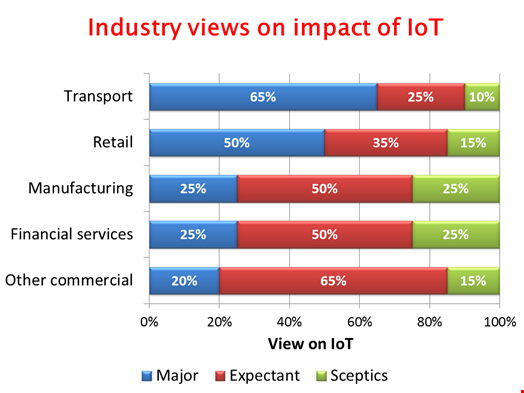The growing number of network-attached devices (that constitute the Internet of Things) is a big opportunity for a little known vendor called Neustar to increasing its stake in the European IT security market. This will happen due to Neustar’s heritage in the provision of real-time information services.
Neustar developed this core expertise providing a mundane but essential service in the US market, running a contract for the US Number Portability Administration Center (NPAC) for both landline telephone services. Neustar has acted as a neutral broker between telephony service providers, so as when a customer chooses to move from one to another, their number can be traced and moved to the new provider. The “neutral” is where the “Neu” in Neustar comes from.
The contract is to be been terminated; however, Neustar believes the heritage will serve it well with all the other services it has acquired and developed which will also enable it to further expand its horizons beyond the USA. 18 years playing a central role in the US telephony market has given Neustar two key assets. First, experience of building and running infrastructure to support high-volume, real-time information services. Second, Neustar has accumulated a large database of basic information about US consumers.
This information is personal and cannot be divulged directly; however this has not stopped Neustar from considering how it could develop chargeable side-line services. It realised that whilst it could not divulge certain information, it could use its necessarily accurate data to verify the quality of other companies’ data – “yes, your information agrees with ours”, or “no, your data is out-of-date”.
This has led Neustar into the broader provision of real-time marketing information services. For example, in 2010 Neustar acquired Quova, an IP geolocation vendor that reports in real-time the likely city where the user of a given IP address is located (Neustar claims 99.1% accuracy via a PWC audit,) and in November 2015 it acquired MarketShare (a digital marketing measurement vendor).
In IP geolocation we can start to see how Neustar has become more involved in IT security. Knowing likely origin of an IP address is useful for online sales and marketing and for controlling use of online services (for example, the BBC used Neustar to limit access to its iPlayer), but also for helping to identify suspicious online behavior—“what is that device doing in that location”.
Neustar’s ability to provide fast real-time information services also took it into the domain name services (DNS) business. It provides authoritative domain name services; for example, it runs the .NET domain, but also through its Ultra DNS, it runs the DNS requirements of large enterprise customers. To provide further value and help customers improve the performance of websites and online applications Neustar has also developed a line of web performance management services, the need for which is underlined by a research report published by Quocirca (and sponsored by Neustar) earlier in 2015—“Online domain maturity”.
DNS has also led Neustar further into the security market. DNS infrastructure is vulnerable to volume distributed denial of service attacks (DDoS). Using hardware from Arbor (the leader in the field), Neustar built out its own DDoS protection capability. It soon realised that the scale of the infrastructure it was building could be used to protect other organisations and in 2011, it launched its SiteProtect service. It has some weighty competitors including the leading provider of content distribution services, Akamai, which acquired Prolexic, another provider of online DDoS protection services in 2013.
Put all this together and you can see why Neustar sees the growth of the Internet of Things (IoT) as an exciting opportunity. It is as important to know that a thing is what it purports to be and it is operating from an expected location. As many things communicated directly with each other (machine-to-machine/M2M), there is a need for such verification to be done very fast: in real-time. Neustar’s DNS, geolocation and a new registry of things all have a role to play here.
Furthermore, new Quocirca research—The many guises of the Internet of Things—shows that one of the greatest concerns about the Internet of Things is the increased attack surface it will expose that will need protecting from, amongst other threats, denial of service attacks. The new research identifies many benefits that UK businesses expect the IoT to herald. It also underlines the need for real-time information and protection services to ensure the reliable performance of IoT applications—a chance for Neustar to shine bright in Europe as its light in the USA fades a little.
Photo © Mikko Lemola

